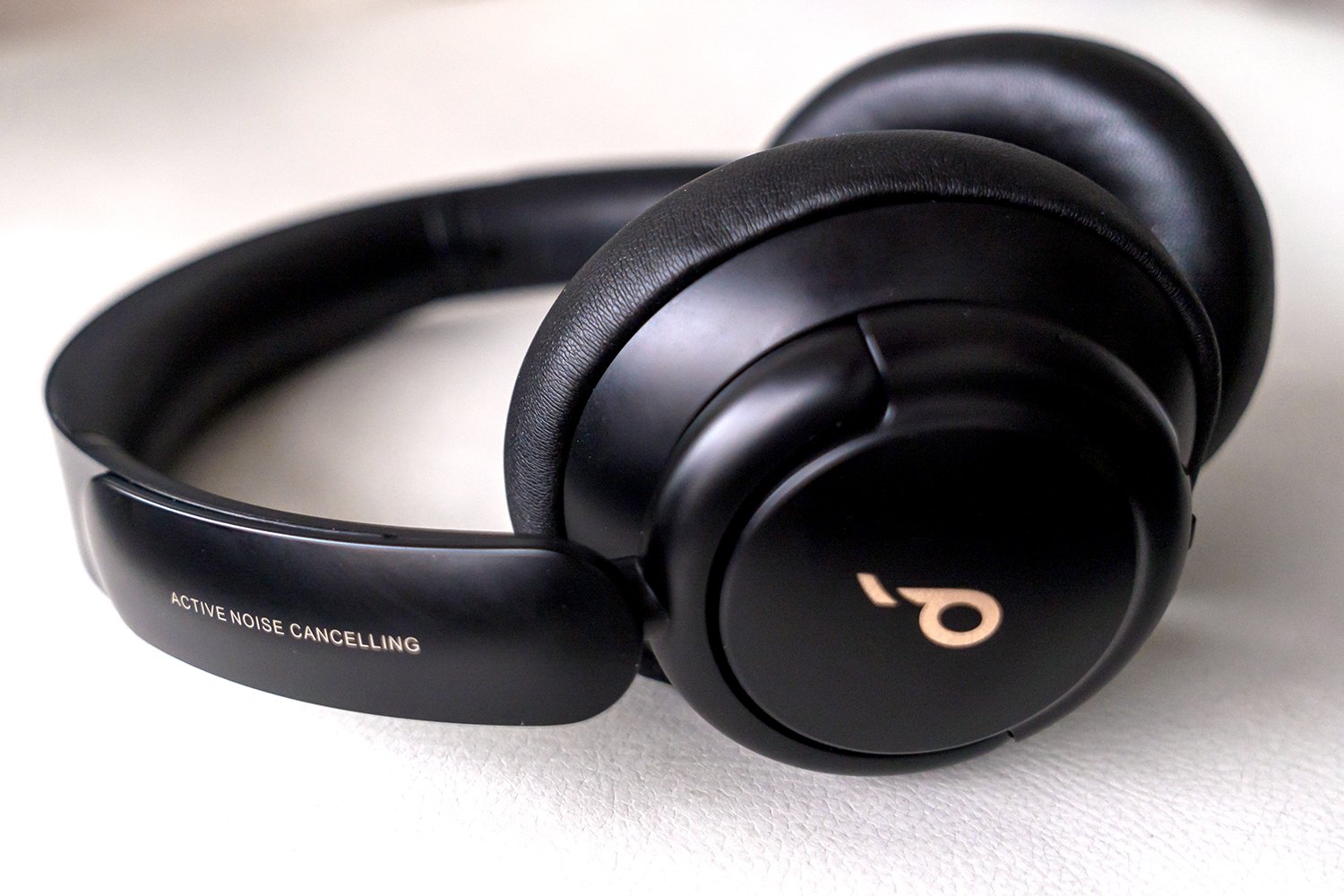Android Central Verdict
Bottom line: Anker pulls off an impressive feat of making affordable headphones that sound more expensive, while also prioritizing features that only serve to make them even better. They do reach their limits in some respects, but not necessarily in ways that will surprise you, especially when looking at the value of what you're getting.
Pros
- +
Superb audio quality
- +
Outstanding battery life
- +
Better build this time
- +
Great companion app
- +
ANC support
- +
Affordable price
Cons
- -
Limited touch controls
- -
Bulky design
- -
Unclear long-term durability
Why you can trust Android Central
Anker has done something that isn't easy, which is to branch out from making portable charging products to making good headphones at affordable prices. The Soundcore Life Q20 was something of a statement for the company, and its successor, the Soundcore Life Q30, is hard evidence that it wasn't a fluke.
It's not just in what Anker chose to include, but also in the consistent performance that makes the various parts fit together with admirable cohesion.
Anker Soundcore Life Q30 What I like
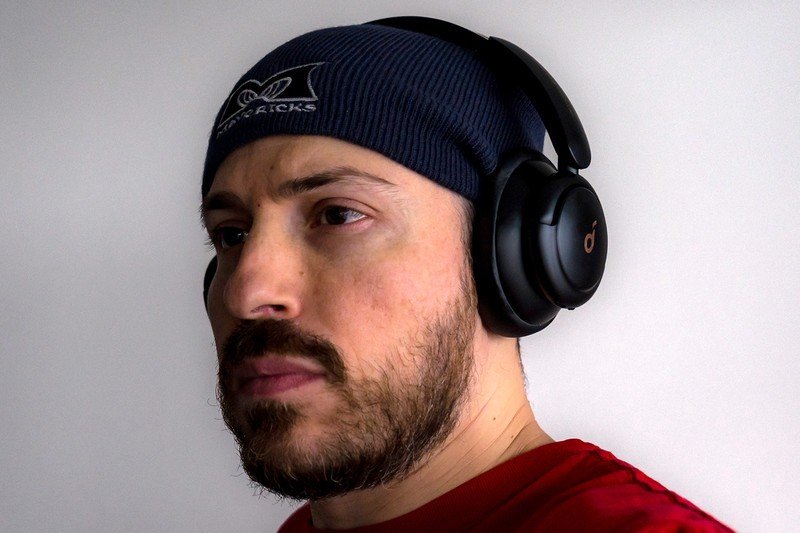
Anytime a sequel comes out for a pair of headphones, you count on the manufacturer correcting past mistakes. That's certainly one way to put it for the design. Anker went with a sturdier set of materials to craft this. It's still plastic and soft vinyl, only that the tighter build makes these headphones feel a little more premium than they otherwise would've been had Anker stuck to the same exact design.
The rounded earcups have enough space to cover most pairs of ears, which pays off in helping to passively isolate background noise as much as possible. The thing is, these headphones are pretty big off the bat, so I would expect them to be comfortable, which they are. Anker even equipped them with a slew of onboard physical controls to simplify things.
There's a dedicated button on the left ear cup to toggle active noise cancelation (ANC) and Transparency mode on, plus the power button to turn the Soundcore Life Q30 on or off. It's also where the USB-C charging port is. The right ear cup has play/pause, plus volume buttons. Double click those buttons and you can skip a track (volume up) or repeat one (volume down). The right side has an NFC chip for quicker pairing, and also features its own way to toggle ANC/Transparency. Just cup the right side with your hand and the voice prompt will tell you which mode it's in.
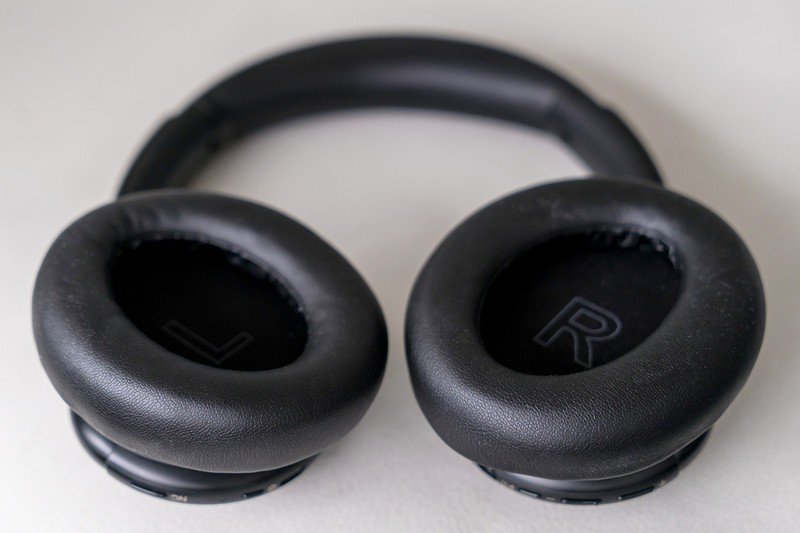
Setting these up isn't very hard. The NFC chip on the right ear cup makes pairing even easier, though you could also go the standard route through your phone's Bluetooth menu. I also downloaded Anker's Soundcore app, which offers some useful features, starting with firmware updates. I got two of them over the month that I tested these cans, but what I liked even more was the equalizer and quick presets available.
As for comfort, I actually found these roomy and not all that tiring, despite their heavier weight and heft. They are big headphones, so they won't be all that appealing from any svelte aesthetic, but the passive isolation does make up for that to a large degree.
Any pair of headphones under $100 are going to come with some caveats, but I was stunned these sounded as rich as they did.
So does the sound quality. Any pair of wireless headphones under $100 are going to come with some caveats along the way, and yet, I was stunned these sounded as rich as they did. For one, they aren't tinny, nor are they ridiculously skewed toward bass from the start. Yes, there is plenty of bass — and even more, if you want that — but I didn't find it was at the expense of the rest of the spectrum. Vocals and instruments still came through nicely.
At the same time, they're not going to pick up the distinct sounds and signatures that make highs and mids so great on more expensive cans. The Soundcore Life Q30 were clearly engineered for the bass-loving crowd, so self-respecting audiophiles naturally won't come away pleased with them. But that's not who Anker made these for, anyway. Even if you factor in the app-based EQ, where there are 22 presets, plus whatever you create on your own using the 8-band EQ, the sound won't magically reach unfathomable plateaus, but the results will still be impressive. And given the app isn't available to the previous Q20, it's one of those tools that sets these headphones apart.
They do get loud, too. The default volume was generally fine for me in quieter confines, but whenever it got a little loud around me, I didn't need to crank it up too much. The onboard ANC has three distinct settings available on the app: Transport, Indoor and Outdoor. They're pretty self-explanatory, and Anker claims they're each optimized to drown out background noises largely associated with those respective environments. I found that to be mostly true, though higher-frequency sounds always bled through to some degree. That was okay from my point of view, considering how good the passive isolation was. It's half the battle, and the ANC only added to it.
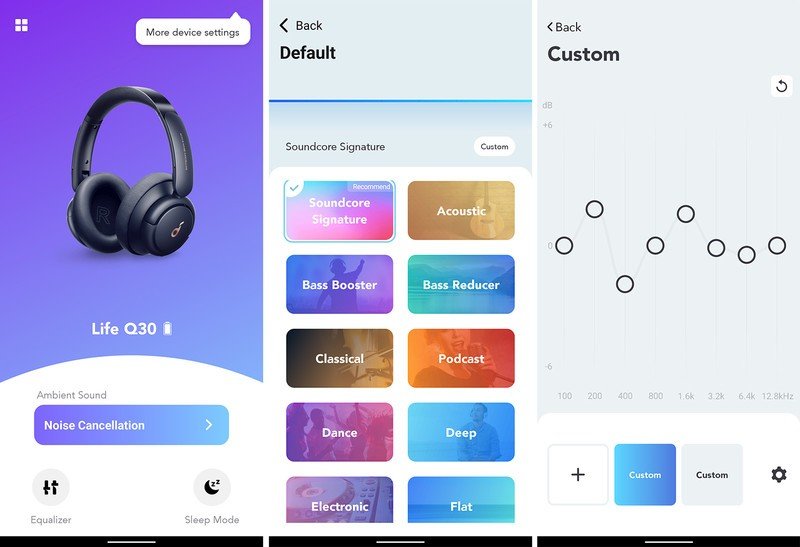
I also appreciated that the Bluetooth connection held firm. I could walk into other rooms in my place and not experience any cutoffs. Walking with the headphones and paired phone in tow, I also didn't encounter weird hiccups or cuts during those instances. Always nice to see in a pair of affordable headphones.
The onboard mics were also pretty good for calls. I had several conversations wearing the headphones while at home and the results were excellent. Callers said I came through clear, though it did help that I was at home alone without any real ambient noise around me.
And last, but certainly not least, was the amazing battery life. With ANC off, the Soundcore Life Q30 can go up to 60 hours per charge. Turn it on, and it's still a more-then-respectable 40 hours. Those are crazy figures for headphones at any price point, let alone something that isn't premium. While volume levels also impact the overall battery levels, the default volume helps keep things steady to reach those numbers. I was listening to music and podcasts for days and days before I heard the beep indicating a low charge. And with USB-C, a five-minute charge had them going for four more hours.
Anker Soundcore Life Q30 What needs work
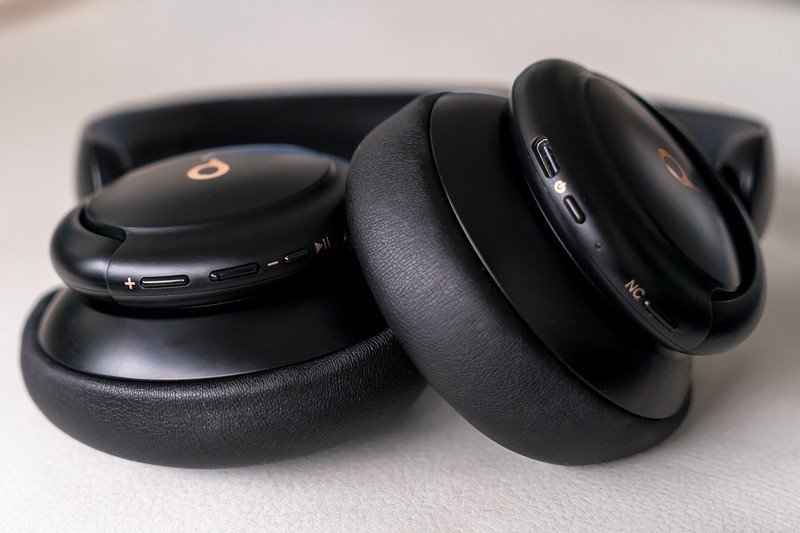
Some of the things you sacrifice to get this feature package at this price are understandable. Others take some getting used to. The onboard controls are easy enough because they're physical buttons, but it does take time to memorize where they are. Cupping the right ear cup is a neat way to add some easy functionality, though I wish Anker would have made that customizable, given there already is a button for the same exact thing.
Speaking of which, if you want to listen with the Aux-In cable, you may find the sound a little flatter than usual because the EQ doesn't kick in. The same kind of effect happens with phone calls in noisier environments. As good as ANC is at suppressing most background sounds, it doesn't really do anything substantial for calls.
Anker also certified the Soundcore Life Q30 for Hi-res audio, which is great, but what the company didn't mention is that you need to tinker with the EQ to actually benefit from the feature. You could argue you need to tinker with it for just about any individual sound preferences, but I can't help but feel like it gives people the wrong impression. The Soundcore app is critical to getting the most out of these headphones, no matter what your tastes are.
The Soundcore app is critical to getting the most out of the Q30.
If not for that app support, there wouldn't be much to write home about here by default. Decent headphones, maybe, but not the upstarts they turn out to be. They're packed with a lot to like, but their hefty size shouldn't be taken lightly.
These are more fragile than they let on. Not from anything I personally experienced, mind you, as I didn't ding or drop them, just that I do wonder how much punishment they can take. Anker hasn't given them an IP rating for water, dust or sweat resistance, so it's unclear how long they can last if you're breaking a sweat with them.
Competition
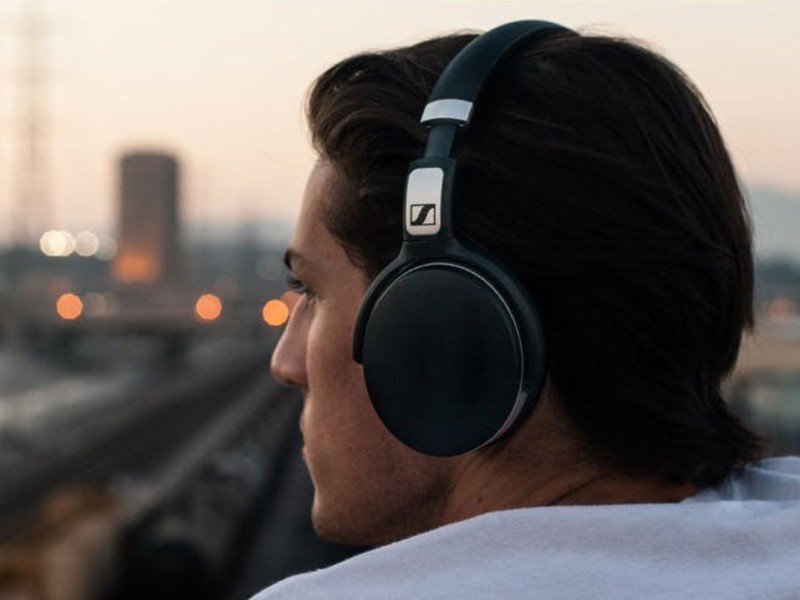
It's hard to find headphones at this price range that top the Soundcore Life Q30 when taking it for the sum of its parts. There are some great wireless headphones under $100 that can certainly compete. The Sennheiser HD 4.40BT are a bit longer in the tooth now, though still sell well because of how good they sound relative to their cost.
Anker's own Soundcore Life Q20 was our pick for the best over-ear pair, but they've been overtaken by this pair here. You can still get the Q20 for less, though you lose out on all the benefits of their successors, especially the app support. There are some other models that punch above their weight, like the COWIN E7 Pro or the Taotronics TT-BH060, as a couple of examples.
Anker Soundcore Life Q30 Should you buy it?
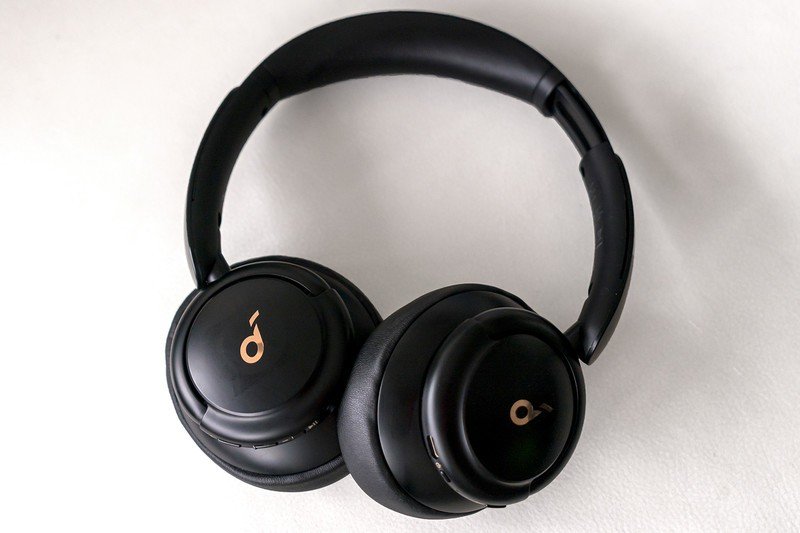
Who it's for
- You have a tighter budget
- You care about audio quality and bass
- You want ANC and Transparency modes
- You want to be comfortable
Who it isn't for
- You want something you can sweat with
- You want the best call quality everywhere
- You prefer touch-sensitive controls over buttons
- You consider yourself an audiophile
Anker proved that not all headphones are created equal when you look at their price tag. It's that value proposition that makes the Soundcore Life Q30 so compelling because not too many competitors can say the same in this range. You get a lot to work with courtesy of the app, which proves to be the major factor in making these headphones as flexible as they are.
4 out of 5
They're really the ones to beat in this range, if we're putting all the cards on the table. So long as you feel comfortable wearing them, and you find a sound that suits you, it's hard to think these headphones will turn out to be duds.
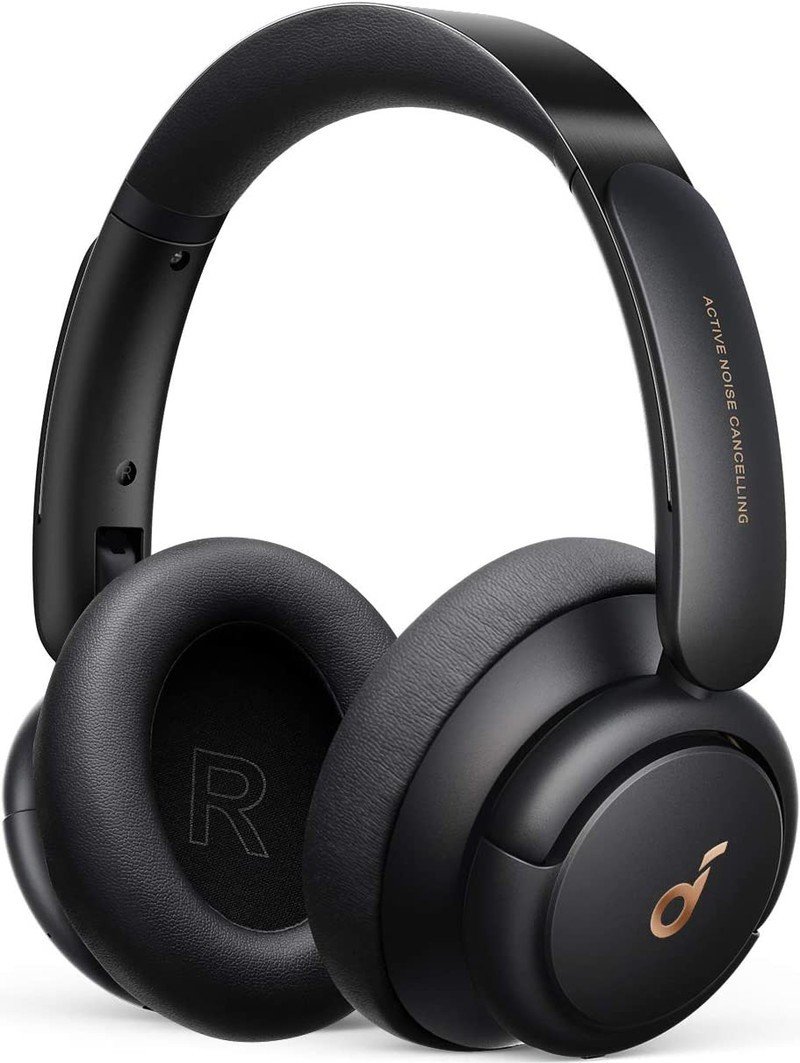
An upstart with class
Anker manages to cram in a hefty amount of battery life in the Soundcore Life Q30, but doesn't stop there. The bevy of features available are numerous for a pair of headphones that cost this much less than competitors, and with good sound and steady connectivity punctuating it all, it's easy to like listening to anything with these.

Ted Kritsonis loves taking photos when the opportunity arises, be it on a camera or smartphone. Beyond sports and world history, you can find him tinkering with gadgets or enjoying a cigar. Often times, that will be with a pair of headphones or earbuds playing tunes. When he's not testing something, he's working on the next episode of his podcast, Tednologic.
